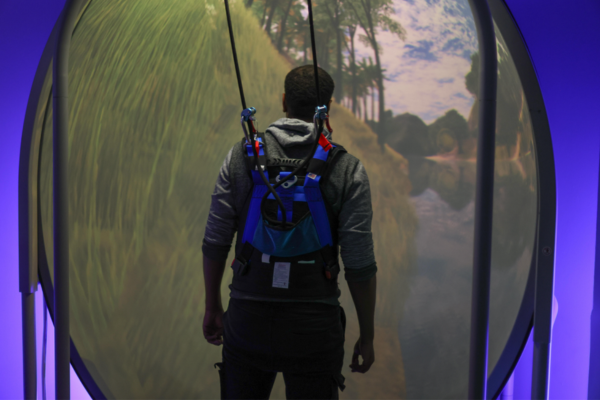Hand-eye coordination is a fundamental skill that allows us to interact with the world around us. It plays a crucial role in various activities, from playing sports and video games to performing everyday tasks. While some individuals seem naturally adept at hand-eye coordination, others may struggle initially. The question arises: Can you learn hand-eye coordination? The good news is that hand-eye coordination can be improved and developed through practice, training, and certain techniques. In this blog post, we will explore the concept of hand-eye coordination, its importance, and methods to enhance this skill.
Understanding Hand-Eye Coordination
Hand-eye coordination is the ability to synchronize visual perception with precise hand movements. It involves the coordination between the eyes, brain, and hands, allowing us to accurately perceive objects and execute specific actions or tasks. This skill relies on the visual system’s ability to process and interpret visual information, and the motor system’s ability to control and coordinate hand movements accordingly.
The Importance of Hand-Eye Coordination
Hand-eye coordination is vital for a wide range of activities in our daily lives. It is especially crucial in sports, such as basketball, tennis, and golf, where precise hand movements and visual tracking are essential for success. Additionally, it is valuable in activities like playing a musical instrument, typing on a keyboard, operating machinery, or even driving a vehicle. Developing good hand-eye coordination can improve overall motor skills, reflexes, and reaction times, leading to enhanced performance and efficiency in various tasks.
Can Hand-Eye Coordination be Learned?
The good news is that hand-eye coordination is a skill that can be learned, improved, and refined over time. While some people naturally have better hand-eye coordination, it doesn’t mean that others cannot develop this skill with practice and training. Here at Parker Performance, we offer Athlete Coordination Enhancement programs to help improve the way athletes of all ages and capabilities perform complex coordinated movement.
Here are some of the methods included, that can help in improving hand-eye coordination:
- Practice and Repetition: Like any skill, practice is key to improving hand-eye coordination. Engage in activities that require hand-eye coordination, such as playing sports, video games, or musical instruments. By consistently repeating these activities, you can strengthen the neural connections between your visual and motor systems.
- Hand-Eye Exercises: There are specific exercises designed to improve hand-eye coordination. These exercises often involve tracking moving objects, aiming at targets, or performing precise hand movements. Juggling, using a ball toss, or playing catch are simple examples that can help improve hand-eye coordination.
- Visual Training: Enhancing visual skills can greatly impact hand-eye coordination. Visual tracking exercises, such as following a moving object with your eyes, can improve your ability to track objects accurately. Additionally, visual perception exercises, such as puzzles or visual memory games, can sharpen your visual processing abilities.
- Balance and Proprioception Exercises: Hand-eye coordination is not solely dependent on the visual system. Balance and proprioception, the sense of body position, also contribute to overall coordination. Engaging in activities that challenge your balance, such as yoga or balance board exercises, can indirectly enhance your hand-eye coordination.
- Multisensory Integration: Hand-eye coordination can be improved by incorporating other senses, such as touch and sound, into the training process. Activities like playing a musical instrument or learning to juggle involve the integration of multiple sensory inputs, leading to enhanced coordination skills.
Hand-eye coordination is a skill that can be learned, improved, and refined through practice, training, and specific techniques. So, whether you’re aiming to become a better athlete, musician, or simply improve your coordination skills, get in touch to learn more about our program, and what your custom plan could look like.




